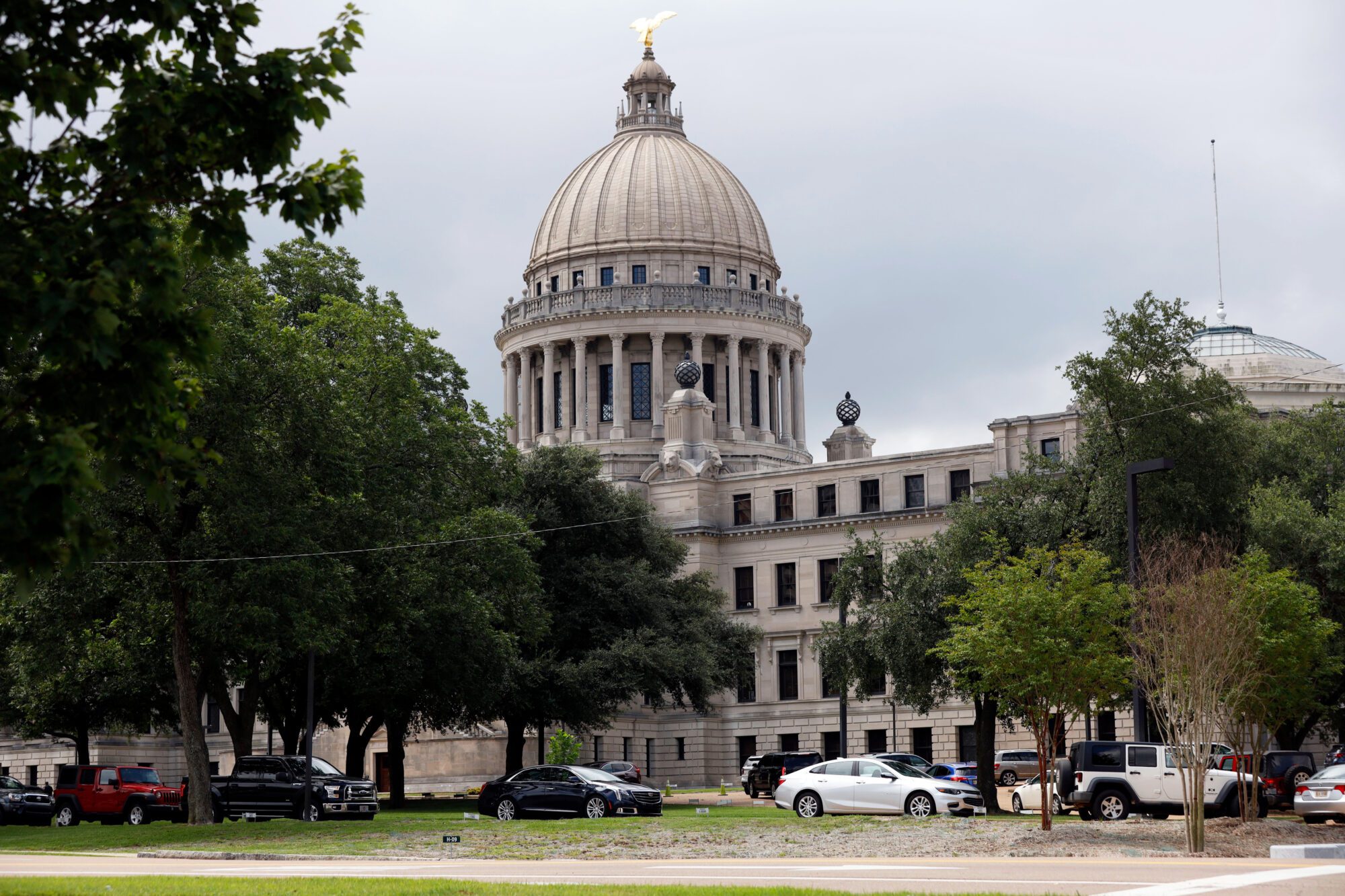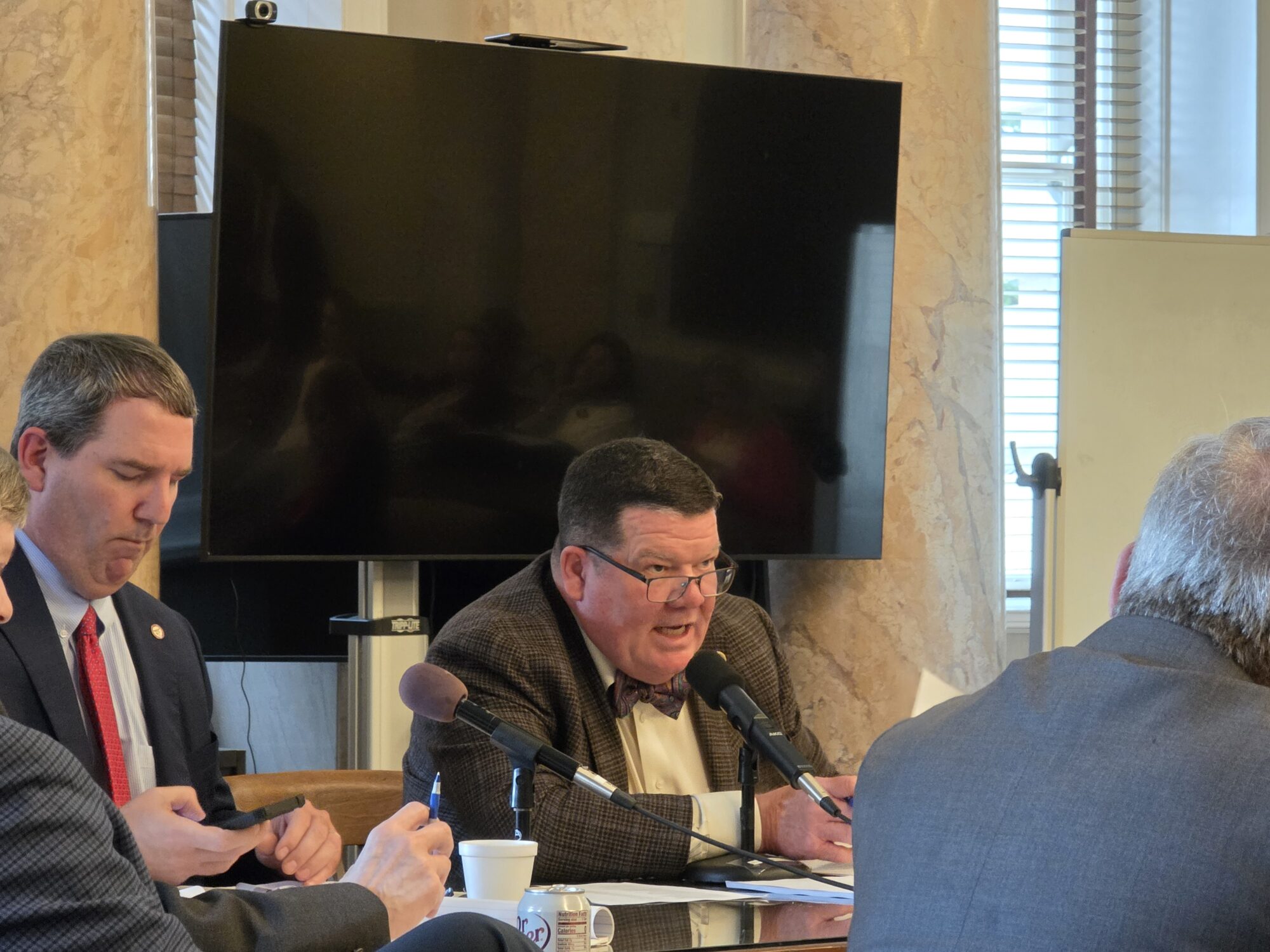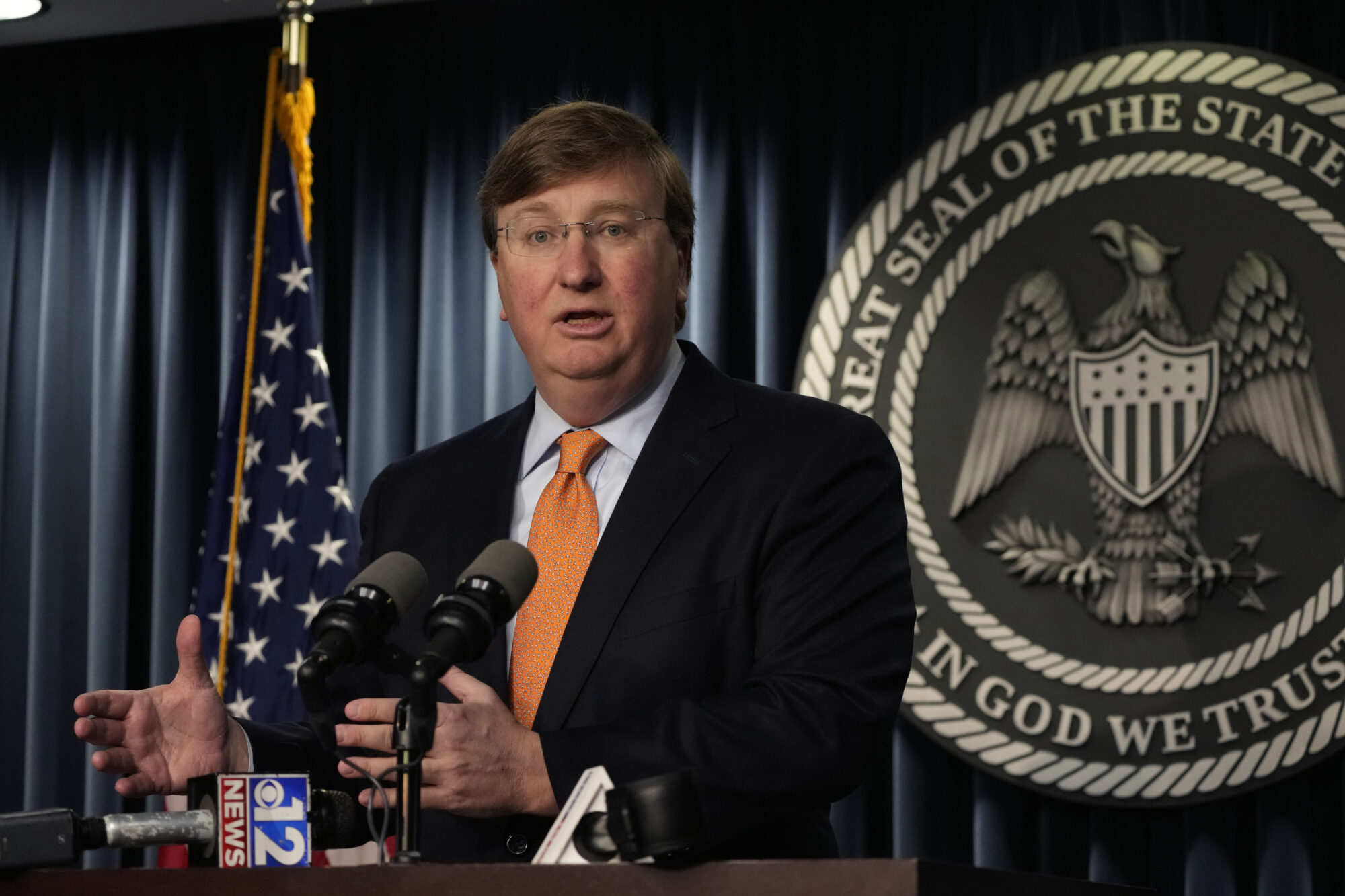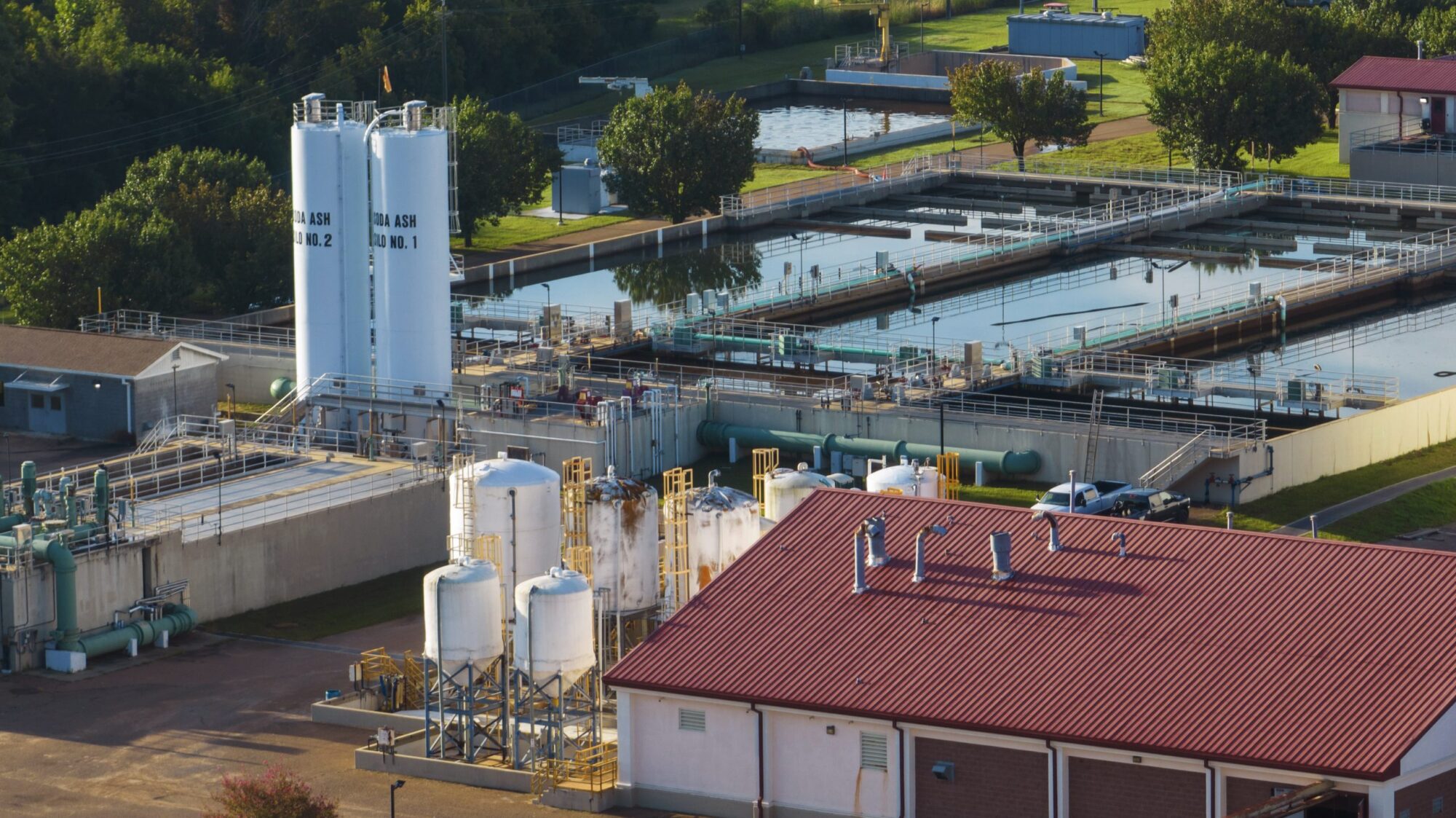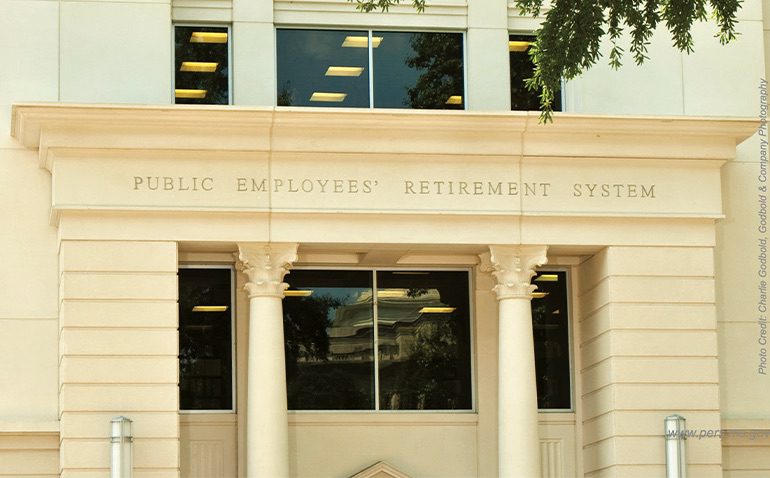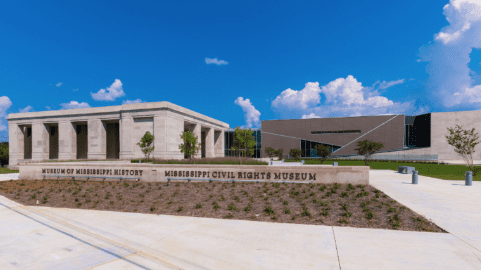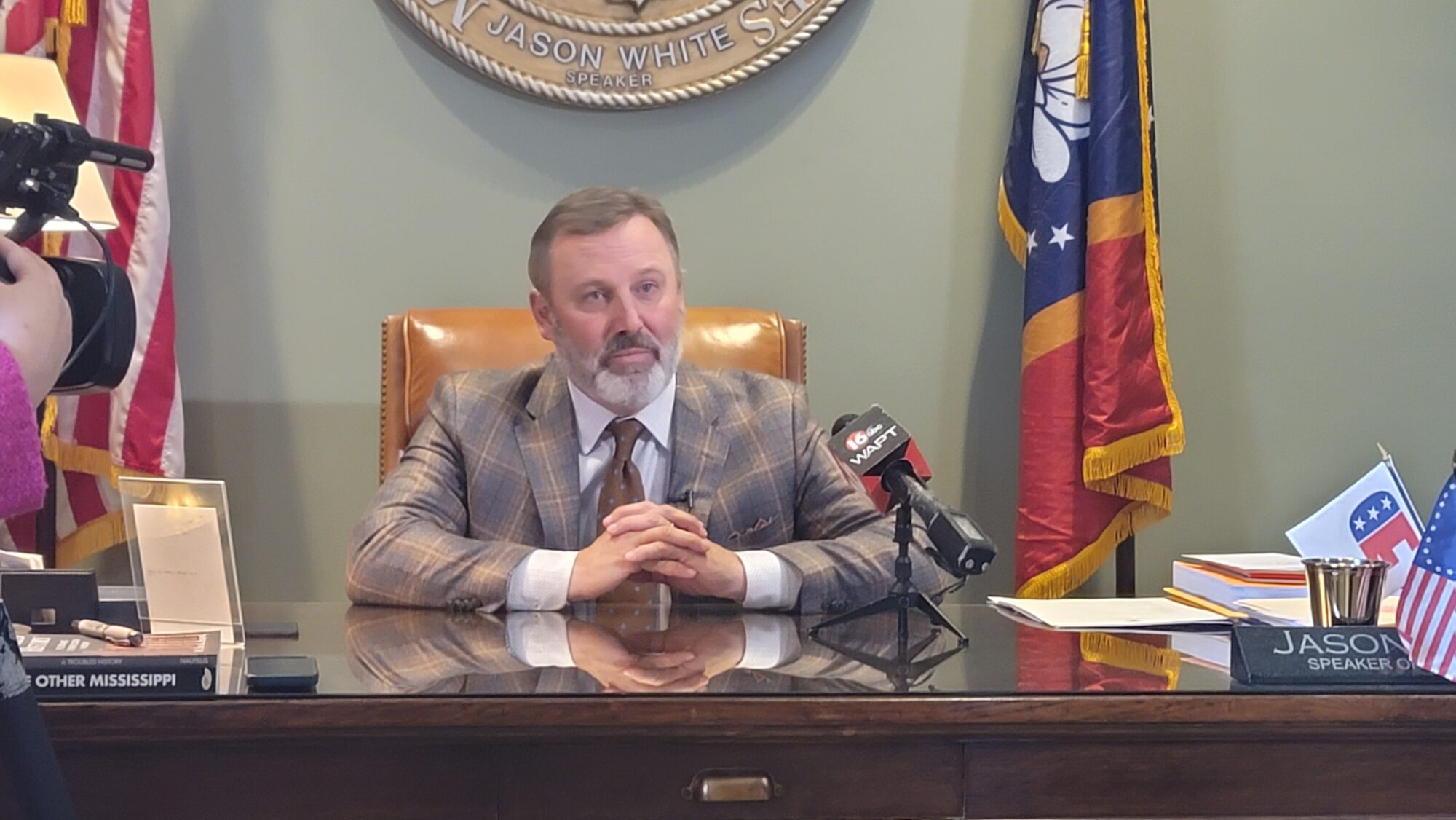
Speaker of the House said the House of Representatives plans to tackle education, healthcare and tax cuts during the 2025 legislative session (Jeremy Pittari | Magnolia Tribune)
- Lawmakers gavel in today at the Mississippi Capitol to begin the 2025 legislative session.
Tax cuts, education reform and Medicaid expansion sit at the top of both Lt. Governor Delbert Hosemann and Speaker of the House Jason White’s wish list. Each held court with members of the press on Monday.
While there’s broad agreement between the two Republicans on priorities, there are differences in how best to accomplish the goals.
Tax Cuts on Horizon
In 2022, the Legislature passed a package of tax reforms that created the largest tax exemption in the country among states that collect income taxes. A single filer now pays no state income taxes on the first $18,300 in income. Married filers pay none on the first $36,600. The law also created a flat 4 percent tax on income over these levels, with changes fully phased in next year (2026).
But the plan stopped short of full income tax elimination — a stated goal of House leadership and Governor Tate Reeves (R) at the time.
Speaker White is again pushing for the Legislature to take up full income tax elimination.
“I think it all needs to go. I think you’re going to see legislation from the House that does (that),” White said. “Now you’ll see legislation that makes it go in an orderly fashion a little bit longer than four years.”
Speaker White also wants to gradually cut the sales tax charged on groceries. Mississippi has a 7 percent sales tax applied to purchases, including food items. Under White’s plan, the state would reduce the sales tax on the purchase of groceries down by half, to 3.5 percent.
Lt. Governor Hosemann’s proposal is to reduce the income tax rate by a quarter of a percent each year for four years in an effort to bring it down to a flat 3 percent by 2030. He wants to immediately reduce the sales tax applied to grocery purchases down to 5 percent.
The two alluded to transportation funding in their comments. Mississippians currently pay 18.4 cents per gallon in state taxes on fuel — called an excise tax — and another 18.4 cents per gallon in federal fuel taxes in lieu of the state sales tax.
Proposals to raise the state excise tax failed to gain sufficient support in 2016 and 2017, but sources tell Magnolia Tribune that new conversations have occurred either around raising the state excise tax on gas or removing the sales tax exemption as a way to generate more dedicated revenue to MDOT.
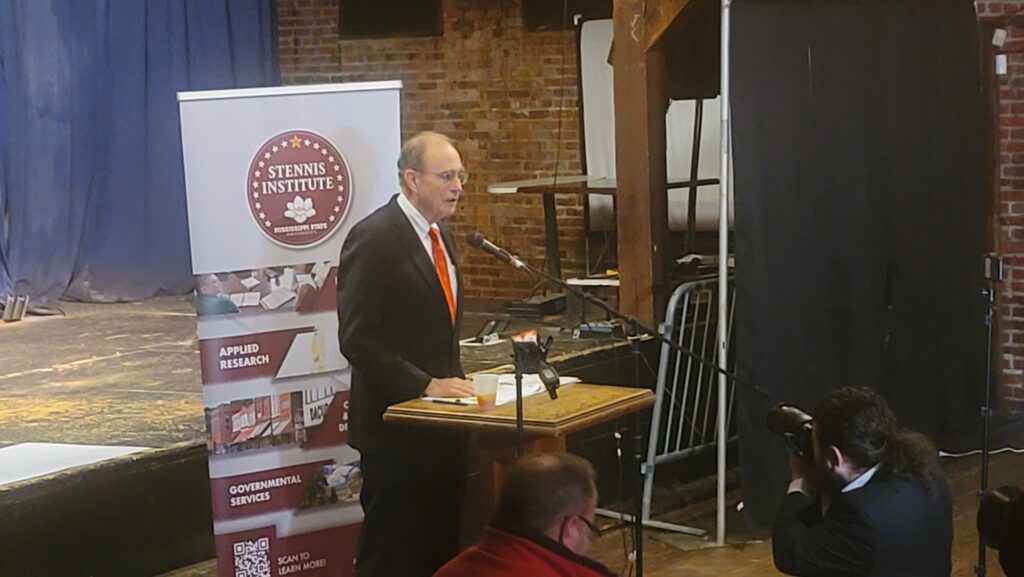
Education Reforms
At an average of 24 percent statewide, Lt. Governor Hosemann is also focused on addressing the state’s issue with chronic absenteeism in public schools.
“We are desperately in need of a process to keep our kids, and get our kids, back to school. You’ll see us emphasize moving our, what I call, truancy officers, from the Department of Education to the local school districts.” Hosemann said.
Last session, Hosemann introduced legislation to help Mississippi’s students cover the cost of community college education by the state providing the ‘last dollar’ after all applicable scholarships and student aid was applied. The end result would be state-funded community college free to students. He plans to work on trying to pass similar legislation this year.
“I want no barriers from when you start at K, or Pre-K, all the way to a community college, you don’t have to pay for that. We want our kids to be educated,” Hosemann added.
The Lt. Governor believes improving education will also help address the state’s labor participation rate. He said the labor force participation rate increased slightly from last year, now at about 54 percent, but he wants to reach the national average of 62 percent.
Both Hosemann and Speaker White voiced support for “open enrollment” policies that would permit a student attending public school in Mississippi to choose a public school other than the one where they live, placing particular emphasis on students in failing districts.
White wants to revamp Mississippi’s accountability model to ensure districts are serving the needs of their students and to reduce the number of school districts to cut down on administrative expenses. However, he said there will be a gradual process, working with the Mississippi Department of Education to achieve this goal.
Medicaid Expansion
Medicaid expansion will also make another appearance this session. Last session, efforts to expand Medicaid failed in the 11th hour, with the crux between the chambers being a work requirement — the Senate was insistent that any expansion be contingent on one.
While both White and Hosemann voiced continued support for expansion, there was recognition that an incoming Trump Administration could impact the policy development.
“We’re going to pump the brakes and figure out where a Trump administration is on these issues,” Speaker White told reporters. “Anybody that doesn’t want to do that, I think you’re not being honest with where the landscape is.”
Lt. Governor Hosemann echoed that sentiment, saying the Senate was likely to pass a “dummy bill” initially, until there was more clarity from the incoming administration.
Key among the considerations will be how a new Trump Administration’s Center for Medicare and Medicaid Services will handle work requirement requests. Both federal courts and the Biden Administration rejected work requirements in recent years. Still, other proposals have percolated that could reduce federal contributions for expansion.
“I just don’t think Congress and the Trump Administration is going to go and try to find a way to try to kick 40 state’s people off of coverage for low-income workers,” White said.
Governor Reeves remains opposed to Medicaid expansion, meaning any proposal to do so must be passed with veto proof majorities.
Speaker White said he would also like to reduce the burden of Mississippi’s Certificate of Need laws, which require medical providers to obtain state approval for offering services, and to improve transparency around pharmacy benefits managers. He expects bills addressing both topics to be discussed in 2025.
Other Issues
White and Hosemann both said they will work on legislation that will bring the state’s ballot initiative back to Mississippians. The restrictions introduced last session, including preventing the topic of abortion from being added to a ballot, are expected to be part of this session’s bills according to both lawmakers.
White wants to restore voting rights for felon non-violent offenders and to expand paid parental leave for state employees.
Hosemann said that taking steps to ensure the sustainability of the state retirement system was a priority. PERS currently has more than a $25 billion unfunded liability. He said he also wants to continue working on streamlining the size of government in the state.
